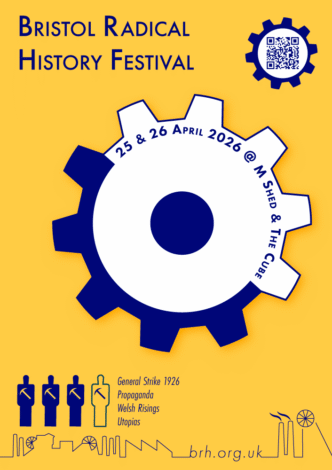The 1926 miners’ lockout in the Forest of Dean and the Somerset coalfield
Women, Rough Music, and Direct Action during the 1926 lockout in the Forest of Dean Ian Wright will discuss the use of rough music and skimmington-style protest by miners' wives against blacklegs and the police during the 1926 miners’ lockout in the Forest of Dean. The talk will then explore the subsequent occupation of Westbury Workhouse by around 300 women and children in response to the withdrawal of Poor Law relief for miners’ families. Resistance and resilience: the 1926 General Strike and […]


